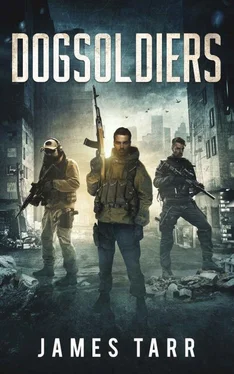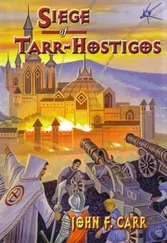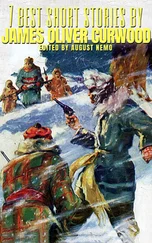In wars, probably every war since the dawn of time, militaries always had to deal with DPs, displaced persons. DPs were ironically one thing Parker didn’t really have to trouble himself with. This city seemed to be filled with people who refused to leave even when they should.
“Colonel, I’ve spoken to you about your language before. Our enemy is not to be given any respect they are not due. They are not guerrillas, much less soldiers. You can refer to them as rebels, traitors, or, preferably, terrorists.”
Parker closed his eyes and ran a hand through his short hair. Semantics , he thought. I’m being slowly bled to death and they’re worried about my vocabulary . He didn’t hold it against Barnson; both men knew their conversation was being recorded, and intelligence was always on the lookout for signs of sympathy toward the enemy. A number of high-ranking military officers had simply disappeared, and it was assumed they weren’t appropriately supportive of the government’s endeavors. Thinking correctly was valued just as highly as acting correctly at this late stage in the war. Parker didn’t have sympathy, but he knew his enemy wasn’t evil incarnate. He was fighting ordinary men who for various bad reasons had chosen the wrong side. He wasn’t about to demonize them or make them something they were not. Still, he knew better than to say anything like that aloud.
“I’m sorry, Sir, I was just trying to be accurate as the… terrorists are using guerrilla techniques. But you haven’t addressed my concerns. We’re being nibbled to death here, by a ragtag bunch of amateurs. They don’t have the numbers to actually come at us, try to displace us or seize any objectives, and I don’t see how they can have any hope of victory here, all they do is harass my men and damage their vehicles. If you actually gave me some resources I’d be able to wipe them out in no time.” He barely had the manpower to police the markets which had popped up all over the city to make sure they weren’t selling illegal goods, much less provide security in the Blue Zone and at the three government distribution centers in the city which handed out food and medicine to the civilian populace. Such tasks should have been handled by local law enforcement, but there hadn’t been a police presence in the area for years. The handful of fools in the city council fighting with the Mayor over the carcass of the city barely counted as government.
So many of the housekeeping duties, so to speak, that his troops were forced to perform in the city, should have been handled by members of the local government, especially the police. However, once civil disobedience turned into active resistance, and cops started getting killed for trying to enforce the new common-sense restrictions aimed at curbing violence, they bailed out and left the job to the military. In fact, a sizable percentage of law enforcement officers decided to take up arms opposing their government, a fact which he still, to this day, could not comprehend. If your job is to enforce the law, you didn’t get to pick and choose which laws, and you sure didn’t, or shouldn’t, join the other side and become criminals. No one got to choose which laws to enforce or obey, especially not those who were tasked with upholding them. They’d taken an oath. But then, so had all the members of the Marine Corps, and after six months of combat with the anti-government forces so many Marine Corps units had defected—with their tanks and planes and guns, he might add—that the few remnants remaining loyal to the government had just been absorbed by the Army.
There was a grumble on the other end of the line. “As you say, they are a ragtag bunch of amateurs, low in number. As such, you should have all the resources you need to take care of such a minor problem. As difficult as I admit fuel is to come by these days they still have zero Toads. Zero IMPs. Zero armor of any sort. Zero aircraft. And yet you seem incapable.”
Parker took a deep breath. “With all due respect, Sir, I just don’t have enough men to properly go after the—the enemy. We can’t attack them en masse, they never move about in groups larger than a dozen men. Usually less than that. Over half of the men we lose are to snipers, and the only way to defend against them is to either not patrol or for my men to stay buttoned up in their vehicles where they couldn’t see a circus parade marching down the street. And we can’t attack the enemy’s bases in or outside the city, because as far as we can determine they don’t have any as such. They don’t use cell phones or traditional radios. For all I know they’re passing paper notes or banging rocks together. Or using smoke signals. We’re not even sure how they’re operating, if there is any civilian infrastructure in the area supporting them we haven’t been able to find it. The city is an overgrown ghost town, which is why those drones I’ve been begging you for would be so valuable. I’ve barely got enough surveillance drones and operators to cover our Blue Zone and the perimeter of the airport, and I don’t dare pull them away from that to assist with patrols. The only option we have is to cordon off large areas and go house to house, but to do that I’d have to pull in all my patrols and roadblock troops just to have enough bodies. But we’ve still done it… with very little to show for it.
“Our intelligence is pretty much useless. Nothing actionable out of our so-called sources in the city for months. We’re getting near zero human intelligence out of the city now that I no longer have the funds to pay for real-time intelligence from informants. Interrogations of what few people we’ve arrested recently have provided negative results. I’ve been reduced to waiting for the… rebels to strike and then chasing after them.” They’d tried decoy convoys, and a few other tricks, hoping to lure the guerillas into ambushes, but with little success. Their intelligence, apparently, was better than his. Or their luck was. He looked out the window of his office at the buildings visible in the distance. He wondered how many guerrillas were out there, surveilling the base, logging every arrival and departure, the numbers and types of armor and aircraft… “Like I said, the problem is, the majority of our losses are due to snipers. One man here, another there; I lose soldiers every week, summer or winter. With all its vacant buildings this city is a sniper’s paradise, but to be honest we take just as many casualties from snipers out in the country as we do inside the city. And most of the time the shooter gets away.”
Barnson sounded angry. “I have addressed your concerns, Colonel. And I’ve brought them to the attention of my superiors. I and everybody else down here are aware of the shortages you’re suffering. They are not worried. Intelligence reports enemy numbers in your area are low, and that they’re very disorganized.”
“General, are they aware I’m losing ten men a month to these disorganized few? They’re organized enough to aim rifles and disappear when we give chase. I know ten casualties is a paltry few to what’s going on elsewhere, but we are still steadily losing men. The local population, thin as it is, has to be supplying them aid and comfort, as your intelligence specialists like to say. We’ve had very little luck disrupting their support infrastructure, or even identifying it. My men… I haven’t actually been sent any new troops in two months. I’m as short-handed as I’ve ever been. As I’m sure you’re aware.”
“I was under the impression four sniper teams just arrived there this morning.” Now Barnson was getting irritated. He’d had to move heaven and earth to get those teams for Parker.
“Yes Sir, and I welcome their arrival, as almost all of my snipers were reassigned to the heavy conflict zones months ago. I’m sure they’ll perform admirably, Sir, but eight men are a fraction of what I need. Eight men in hundreds of square miles of territory.”
Читать дальше












